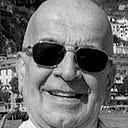Oggi, Anna, decise di scrivere il suo diario di guerra …
Mercoledì 29 marzo 1944. Anna sente un suggerimento alla radio secondo cui dopo la guerra, le persone saranno piuttosto interessate a leggere i diari di come vivevano le persone durante la guerra. Anna pensa che questa cosa possa essere divertente dal momento che tiene fedelmente un diario. Si entusiasma all’idea di pubblicare il suo diario e inizia a descrivere il tipo di eventi bellici a cui pensa che i lettori potrebbero essere interessati. Con il peggioramento della guerra, sempre meno olandesi collaborano con i tedeschi, per fortuna. Anche gli olandesi stanno decisamente soffrendo. Tutti hanno fame e c’è più criminalità e malattie.
In questo giorno, il diario di Anna Frank diventa un’autobiografia. Raccolti intorno alla loro radio, gli otto residenti dell’appartamento nascosto ad Amsterdam hanno sentito un ministro del governo olandese in esilio suggerire che le lettere e i diari del popolo olandese potrebbero fornire un racconto per il futuro di come era stata la guerra. “Naturalmente”, scrisse quella notte, “si sono immediatamente lanciati nel mio diario”, ma nessuno più rapidamente della stessa Anna. “Immagina”, ha continuato, “quanto sarebbe interessante se pubblicassi una storia d’amore intitolata “Secret Annex”. Il titolo da solo sarebbe sufficiente per far pensare alla gente che fosse un giallo”. Da quel giorno, ha continuato a scrivere le sue lettere quotidiane a “Kitty”, ma è anche tornata indietro negli ultimi due anni, rivedendo e plasmando il suo racconto, non più scrivendo a se stessa ma alla storia.
— — -
Wednesday, March 29, 1944. Anne hears a suggestion on the news that after the war, people will be quite interested in reading diaries of how people lived during the war. Anne thinks this is funny since she has been keeping a diary faithfully. She gets excited about the idea of publishing her journal and starts describing the kind of war events she thinks readers might be interested in. As the war gets worse, fewer Dutch people collaborate with the Germans, thankfully. The Dutch people are also definitely suffering. Everyone is hungry and there’s more crime and illness.
On this day, Anne Frank’s diary became an autobiography. Gathered around their radio, the eight residents of the hidden apartment in Amsterdam heard a minister from the Dutch government in exile suggest that the letters and diaries of the people of Holland could provide a record for the future of what the war had been like. “Of course,” she wrote that night, “they all made a rush at my diary immediately,” but no one more quickly than Anne herself. “Just imagine,” she continued, “how interesting it would be if I were to publish a romance of the ‘Secret Annex.’ The title alone would be enough to make people think it was a detective story.” From that day, she continued to write her daily letters to “Kitty,” but she also went back through the past two years, revising and shaping her account, no longer writing to herself but to history.
